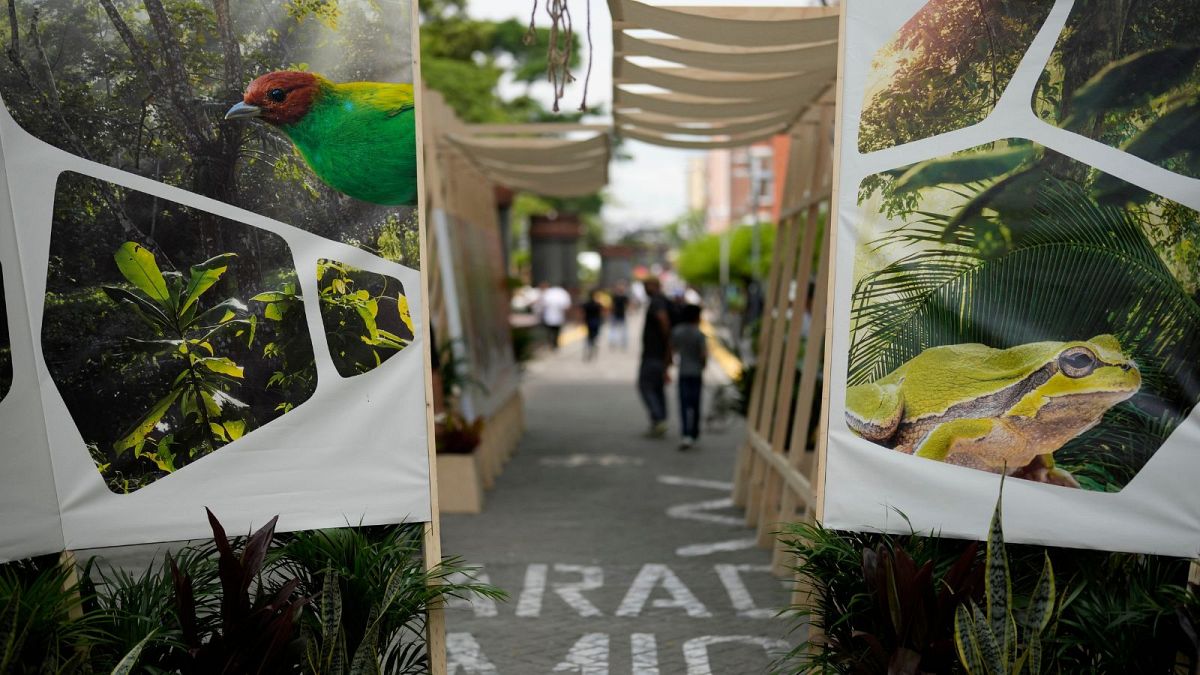Green groups say it’s an “okay start” but many more nations need to step up with finance for nature.
Six European countries have pledged new money to the world’s foremost biodiversity fund, which gained €200 million yesterday.
Austria, Denmark, France, Germany, Norway and the UK announced fresh funding at the UN biodiversity summit, COP16, currently taking place in Colombia.
The Global Biodiversity Framework Fund (GBFF) was one of the key outcomes of the Kunming-Montreal Agreement struck at the previous COP15 in 2022.
The UK, Germany, Spain and Luxembourg previously contributed to the GBFF after it was launched last year. European countries now make up eight of the fund’s 12 donors, which also include Canada, Japan, New Zealand and – in an unusual show of leadership from a sub-national government – Québec.
“This is about money and morale. A message of hope and global solidarity,” Astrid Schomaker, Executive Secretary of the Convention on Biological Diversity said at the conference in Cali, thanking donors for stepping forward.
“We know that the fund is needed now more than ever. We need it to be capitalised to permit resources to flow urgently to the national implementation of the Global Biodiversity Framework.”
How is the funding helping to protect biodiversity?
The GBFF gets cash to countries and communities working to conserve, restore and ensure the long-term health of wild species and ecosystems.
Hosted by the Global Environment Facility, it gathers contributions from all sources, including public, private and philanthropies.
In June 2024, the GBFF approved the fund’s first projects in Brazil, Fiji, Gabon and Mexico. The Mexico project, for example, will bolster national protected areas, in service of the GBFF’s ‘30×30’ goal to protect 30 per cent of the planet by 2030.
In total, 24 developing countries are currently accessing support from the fund, with another 18 ‘project preparation grants’ also approved this summer.
The fund aims to have 20 per cent of its funding support led by Indigenous peoples and local communities, whom research has consistently shown to be nature’s best guardians.
Which European countries have contributed the most to the biodiversity fund?
From most to least, here are the funds that European countries have pledged to the Global Biodiversity Framework Fund so far.
-
Germany will contribute €50 million to the GBFF in 2024. On top of its €40 contribution from 2023, the country’s offering totals €90 million.
-
The UK is contributing £45 million (roughly €54 million) to the GBFF, in addition to its contribution of £10 million from 2023. So around €66 million in total.
-
Denmark is contributing 100 million Danish kroner (around €13.4 million) this year.
-
Norway will contribute 150 million Norwegian kroner (around €12.7 million), subject to parliamentary approval.
-
Spain pledged €10 million to the GBFF earlier this year.
-
Luxembourg also promised €7 million towards the fund at the United Nations Environment Assembly in February.
-
France announced it will contribute €5 million in 2024.
-
Austria is contributing €3 million to the GBFF, pending final internal approval.
Additional pledges from Canada, Japan, New Zealand and Québec have added $163 million (€196 million) to the fund this week.
“In less than one year, the GBFF has moved from launch to full-speed operation, with projects already reviewed, approved and funded, and many more in the pipeline,” says Global Environment Facility (GEF) CEO Carlos Manuel Rodríguez.
“The growing number of governments contributing to the GBFF is a sign of its momentum.”
Germany has urged other countries to contribute to the fund
The GBFF is already demonstrating its ability to deliver for both nature and people, says Jochen Flasbarth, Germany’s State Secretary of the Federal Ministry for Economic Cooperation and Development.
“However, additional funding from public and private sources is essential to keep up the GBFF’s promising development,” he adds. “That is why Germany is committing additional resources and urges other countries to join this effort.”
Nature NGOs say much more support is needed to save imperilled ecosystems and species. This week’s $163 million pledge is an “okay start” says Kristian Teleki, CEO of Fauna & Flora, “but this is the minimum we need from these countries, and on an annual basis. We need a lot more committed, from many more nations.
“Nature’s survival depends on financing, and without it, the costs will go far beyond dollars – they will reach into every part of our lives. The time for empty promises is over.”

